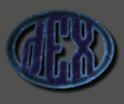|
|
|
Hmm, considering I wrote this nearly seven months ago, its tough remembering exactly what the assignment was. It was written on Sophocle's "Theban Trilogy" aka, "Oedipus Rex." I had to relate to the significance of the words "sight" and "eyes" in this essay. One of my personal favorites because it flowed so well when first writing it.
At The Lip of The Cave
4/24/98
In Sophocles' play, "Oedipus The King," the continuous references to eyes and sight possess a much deeper meaning than the literal message. These allusions are united with several basic underlying themes. The story contains common Ancient Greek philosophies, including those of Plato and Parmenides, which are often discussed and explained during such references. A third notion is the punishment of those who violate the law of the Gods. The repeated mentioning of sight and eyes signify the numerous ancient Greek beliefs present in the story.
During the Theban Trilogy, there are two major philosophical ideals present. The first, and most significant is the ever present concept of Fatalism. After Oedipus learns of his fate, he spends his time trying to avoid it. Through his misfortunes, Oedipus unknowingly fulfills his destiny. The tale acts as a lesson, one that intends to dissuade people to deviate from their given course in life. When the fated attempt to violate the God's rules, he becomes an example of why those rules exist. Just as Oedipus acted as a concrete example of the Fatalist theology. In the story, those who lived by the God's rules will live a good live, and those who followed the laws of man, such as Creon in Antigone, shall be damned.
The other philosophies present come from two people, Parmenides and Plato. Parmenides theorized that things do not change, and therefore that man's senses were inaccurate and unreliable. A blind prophet Tiresius informs Oedipus of what has happened. Abhorred, Oedipus did not even consider that Tiresias was telling the truth. Instead, he accused the soothsayer of lying and insulting him by stating that "your riddance is a blessing." (41) Oedipus is truly the blind one, as he restricts himself to the literal meaning of the tale of the oracle. Unwilling to see what was before him, the overwhelming evidence of his crimes, Oedipus looked for others to blame. Another parallel to being sighted, but blind, is present in Plato's "Myth of The Cave." Just as the cave dwellers did not want to explore the world outside, Oedipus did not want his fate. Oedipus is the cave dweller and Tiresius is the enlightened one who cast off his fetters and sees the true world, the world of ideas.
Punishment is another element in Hellenistic life. For attempting to escape his destiny, Oedipus is punished by Apollo. However, Oedipus goes beyond what the Gods decreed by blinding himself and then leaving Thebes in exile. The city and even more, his children, are only reminders of his malfeasance. Leaving Thebes is also an attempt to distance himself from his troubles. Oedipus proclaims his chastisement when he says "A coupled punishment upon a coupled sin..." (73) With this he begins his life as a living example of how helpless man is, being on only "two legs" and not on all fours as a child or on three as an aged person. The Greeks believed that intrinsically, man was bad, and therefore punishment and making examples of evildoers is ultimately necessary to keep the general populace aligned with the fate the Gods have given him.
The eyes are a portal to the outside world. Specifically, a perception of the literal meaning of what is seen. When one only considers this perception, he can be lead to evil, just as Oedipus. That is one of the fundamental lessons in this work; only secondary to the ideas to Fatalism which were ever-present in the Ancient Greek faith. As the God of Prophecy, Apollo's purpose is illustrated in Sophocles' "Oedipus Rex."
Copyright, © Greg Wittel 1996-2000. All Rights Reserved.
Questions or comments? Contact dEX.
|

